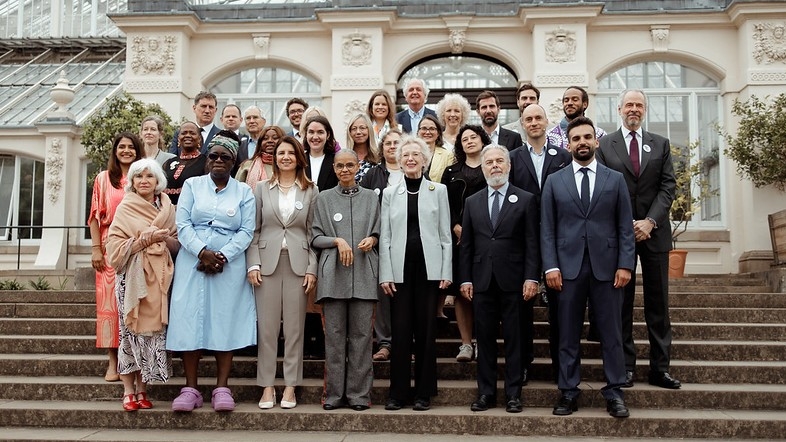COP30 launches guide for Self-Organized Dialogues of the Global Ethical Stocktake
The guide, part of the COP30 “Mutirão” initiative, empowers communities to host their own dialogues on climate action

Now available, the Self-Organized Dialogues Guide was launched this week by the COP30 Presidency’s Global Ethical Stocktake (GES) Circle. This tool enables civil society organizations, local governments, religious and educational institutions, traditional communities, and youth collectives to host meetings centered on the ethical necessity of climate action.
This initiative is part of the Global Ethical Stocktake (GES) Circle—led by President Luiz Inácio Lula da Silva and United Nations Secretary-General António Guterres—and includes six Regional Dialogues with civil society across the globe: North America; South and Central America and the Caribbean; Africa; Asia; Europe; and Oceania. It aims to foster reflection on the values, behaviors, and responsibilities that must be transformed to ensure commitments made at UN Climate Conferences become a reality.
Throughout its preparation, the Global Ethical Stocktake was very well received and received many expressions of interest. This led to the creation of the Self-Organized Dialogues of the Global Ethical Stocktake, using the same methodology. The guide was developed to facilitate meetings on all continents between now and November, when COP30 will be hosted in Belém (PA).
What is the guide?
Now available on the website in Portuguese, English, and Spanish, the guide provides practical guidelines, methodological principles, and guiding questions to help any interested group organize a local GES dialogue.
The guide also emphasizes the importance of creating welcoming spaces that promote listening, empathy, and connection among diverse voices through art and culture.
A decentralized and transformative process
Each gathering helps to bring the decisions and processes of COP30 closer to people's real lives, making climate agreements more connected to territories, rights, and the daily experiences of those affected by the crisis. By promoting dialogue, GES also fosters cooperation, interdependence, and trust — essential elements for more just and effective global responses.
"The Global Ethical Stocktake is the soul of COP30. We need many people in many parts of the world to embrace it. This guide is an invitation to that journey,” stressed Ana Toni, COP30 CEO.
A legacy already underway
The first self-organized dialogues took place two weeks ago in London during the city’s Climate Week.
The inaugural dialogue, held at the St. Ethelburga’s Centre for Reconciliation and Peace, gathered Indigenous, religious, political, and civil society leaders. Among them were Minister Marina Silva and COP30 Youth Champion Marcele Oliveira. The meeting stressed the importance of active listening and thoughtful dialogue during this critical time for the global climate.
“As I listened to the presentations, I thought: how wonderful it would be if our negotiators could witness what was shared here—words like love, solidarity, and responsibility,” said Minister Marina Silva.
The second dialogue gathered 15 friends from diverse fields and countries: Scotland, Ireland, England and Wales, Sweden, the United States, South Africa, Iran, Finland, the Netherlands, Slovakia, and France. Participants, ranging in age from 20 to 82, sat outdoors under a large oak tree, surrounded by birdsong and the sound of a nearby lake. They sang and shared thoughts.
During this second self-organized GES event, participants discussed how art connects emotions and action, the relationship between beauty and spiritual strength, and the dialogue between nature, art, and ecological integrity. They also emphasized the importance of children growing up in contact with nature so they learn to care for it.
These two GES gatherings illustrate how culture is central to shaping climate actions that are just, inclusive, and meaningful.
How to participate?
Anyone can organize a self-organized dialogue. The guide is available, and all dialogue reports should be submitted to the Global Ethical Stocktake Circle.
Access the guide here
English Version: Trad. Bárbara Menezes
Proofreading by Enrique Villamil
